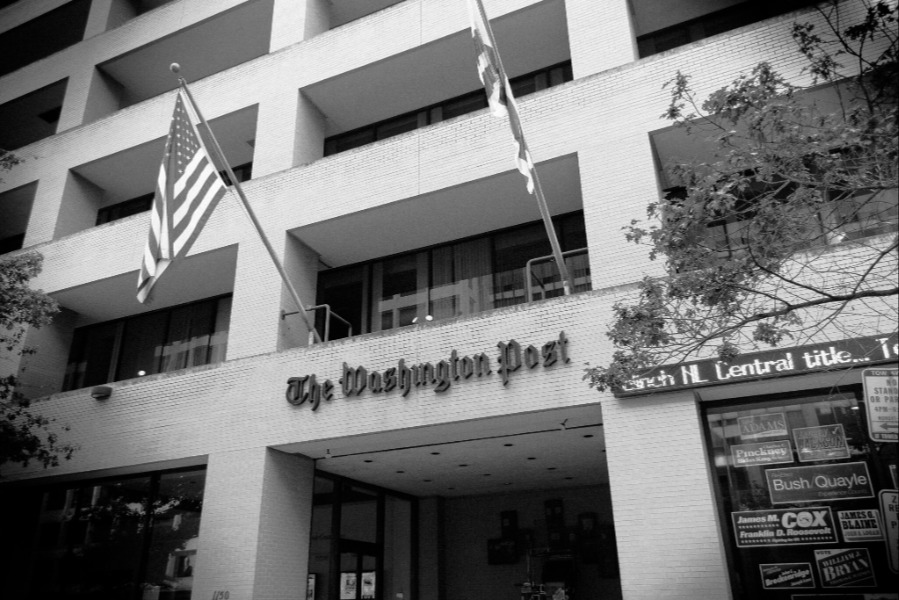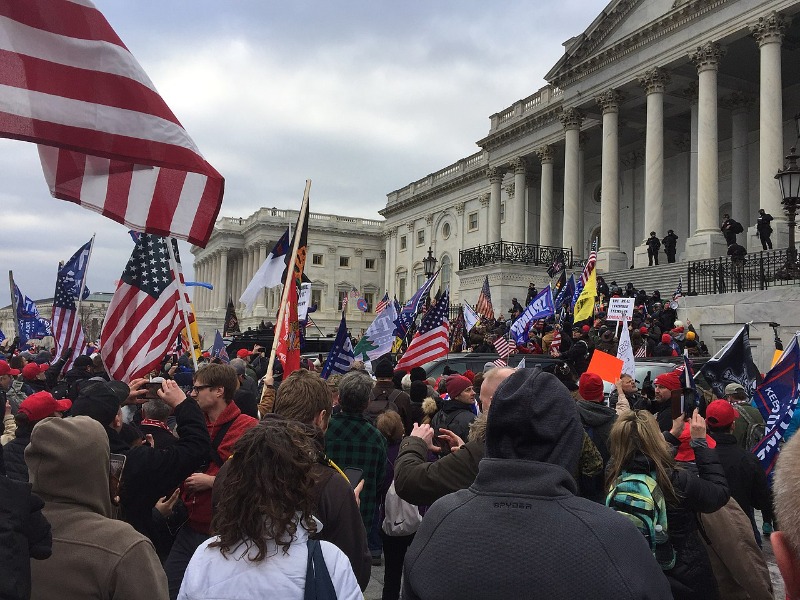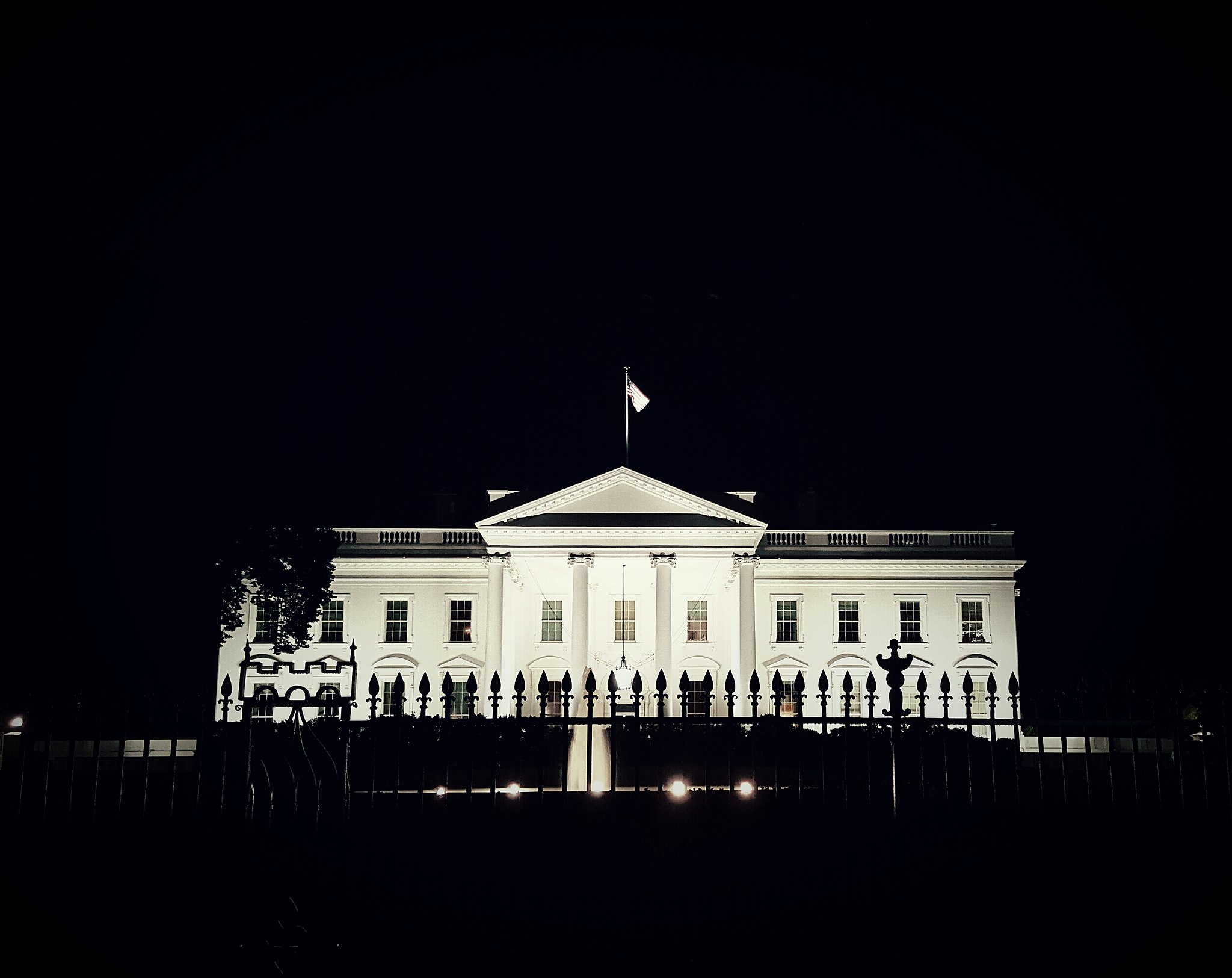Confidence in Government on National Security Matters: Third Quarter of 2019
In July 2017, we began a polling project to measure public confidence in government institutions on national security matters on an ongoing basis. This post provides our data for the third quarter of 2019 (June-September).
Published by The Lawfare Institute
in Cooperation With

In July 2017, we began a polling project to measure public confidence in government institutions on national security matters on an ongoing basis. This post provides our data for the third quarter of 2019 (June-September). It includes public perceptions of government institutions and of the two major political parties’ handling of national security, the public’s comfort with intelligence authorities, and public perceptions about the president’s handling of key national security issues and ongoing military operations.
Change in Confidence in Institutions to Protect U.S. National Security Was Mixed in the Third Quarter
From Sept. 25 to Sept. 27, we used Google Surveys to ask respondents the following questions about confidence in institutions:
- How much confidence do you have in the Congress to protect U.S. national security?
- How much confidence do you have in the federal courts to protect U.S. national security?
- How much confidence do you have in the president to protect U.S. national security?
- How much confidence do you have in the intelligence community to protect U.S. national security?
- How much confidence do you have in the military to protect U.S. national security?
Changes in confidence in government institutions to protect U.S. national security were mixed and moderate since the tracking survey in June. It is important to note that this poll was fielded just after House Speaker Nancy Pelosi announced the impeachment inquiry into President Trump. This timing may have contributed to increased volatility in some results. On a scale of 1 (“no confidence”) to 5 (“high confidence”), the average score for each institution at the end of the third quarter, from highest to lowest, was 3.90 for the military, 3.02 for the intelligence community, 2.82 for the president, 2.75 for the federal courts, and 2.44 for Congress.
For the quarter, confidence in the president and the military increased, confidence in the courts and intelligence community decreased, and confidence in Congress was unchanged. Average confidence in the president was relatively stable; it stayed within the range of 2.80–2.85 for the quarter. The intelligence community experienced the largest drop in confidence over this period: from 3.11 to 3.02. It will be important to watch the public’s confidence in the intelligence community as the president and his allies continue to target it as part of their pushback against the impeachment inquiry. The coming weeks and months may roil confidence levels for multiple national security institutions.
Confidence in Democrats on National Security Dropped at the End of the Third Quarter
At the end of the third quarter, average confidence in the Republican Party was 2.83 on our scale, which was a small increase from June. Average confidence in the Democratic Party was 2.48 at the end of the quarter, which was a steep drop from June, when Democrats were at 2.65. Democrats’ confidence had held steady until September, when it dropped noticeably. While confidence in the Democratic Party remains narrowly above that of Congress as a whole (2.44), Democrats persistently lag behind Republicans in the eyes of the American public when it comes to protecting the country. This is consistent with past polling conducted by Third Way and others that identified this trust gap in national security. We cannot determine whether the drop in September is related in any way to the announcement of the impeachment inquiry. We note that no similar dramatic drop affected the president in the same period of time, though the Ukraine scandal is centrally about his conduct.
Republicans’ advantage for our second question on partisanship and national security—“Which of the parties will do a better job protecting the country from international terrorism and military threats?”—expanded significantly to 14 points this quarter. As with the earlier question, Democrats experienced a sharp drop in support in the September survey. On this question, respondents are asked to choose between the parties or options of “neither” or “don’t know.” When asked in this manner, 32 percent of respondents chose the Republican Party, while 18 percent chose the Democratic Party; 28 percent chose “don’t know,” and 22 percent chose “neither.”
The Public Remains Uncertain About Intelligence Authorities
At the close of the third quarter, we once again asked respondents, “How comfortable are you with the powers of the U.S. intelligence community? Do intelligence agencies in your view have not enough authority or do they have too much authority?” The average response was a 3.10 on our scale. However, this month, as in all previous months, far and away the most common response to this question (43 percent) was a neutral 3 on our scale. And 71 percent of respondents chose one of the middle three options, not either 1 or 5. For the quarter, the average for this question stayed within a narrow range from 3.10 to 3.12. During this period, the country has not experienced notable intelligence failures, terrorist attacks or major intelligence scandals, despite a brief debate over the role of the National Security Agency in losing cybertools that may have contributed to recent ransomware attacks. These disputes, however, seem to receive little public notice. As such, the stability of these numbers during such a period offers a good baseline against which to measure any changes if and when the political process lurches toward considering either expanding or contracting intelligence authorities.
Confidence in the President’s Handling of Key National Security Issues Swung Up This Quarter
In November 2017, we began asking respondents how confident they were in the president’s ability to handle key national security issues, specifically with regard to Iran, North Korea and terrorism. At the end of the third quarter, confidence in the president on these topics was 2.62 for Iran, 2.59 for North Korea and 2.83 for terrorism. Confidence in the president on these three issues increased moderately for the quarter. But this polling was fielded prior to the president’s decision to remove most U.S. troops from Syria, in the face of a Turkish incursion into that region against U.S.-allied Kurds. One persistent trend is that the president continues to enjoy greater confidence on handling terrorism than the challenges presented by Iran or North Korea. Also notable is that—for the first time in this data series—respondents have (marginally) greater confidence in the president on one of these specific national security issues, terrorism at 2.83, than on his general handling of national security (2.82).
Confidence in Ongoing Military Operations Remains Low but Stable
While the military enjoys the highest level of public confidence of any government institution we ask about (a 3.90 on our scale), confidence in ongoing military operations in Afghanistan and Iraq and Syria is markedly lower, with average confidence scores of 2.81 and 2.73, respectively. Both of these confidence numbers are within the range of what we’ve observed throughout this polling project. September’s survey was conducted before President Trump announced the repositioning of U.S. forces in Syria that has allowed for Turkish military action in northern Syria.
Our consistent findings of middling public confidence in these conflicts correspond with a recent poll from the Charles Koch Institute and Real Clear Politics, as well as a recent Eurasia Group Foundation poll, which found that Americans generally prefer to avoid military interventions.
Methodology
From September 25 to September 27, we once again used Google Surveys, which is supporting this project with a large in-kind donation of access to its survey platform, to ask a variety of questions related to national security. Respondents are internet users age 18 and older who answer “surveywall” questions on websites that use Google Opinion Rewards for Publishers to access content. Surveys appear on a network of more than 1,500 sites, including USA Today and the Financial Times. For more information on Google Surveys’ methodology, including questions regarding sampling bias and inferred demographics, please see Google’s white paper on the topic. A follow-up paper from Katrina Sostek showed Google Surveys’ accuracy versus benchmark questions to be comparable to other online survey platforms, with some differences noted based on weighting schemes. Benjamin Wittes and Emma Kohse also discussed criticisms and advantages of the Google Surveys methodology at some length in this paper.








